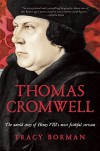SusannaG - Confessions of a Crazy Cat Lady
Just another GR refugee. Other than that, I had a stroke in 2004, and read almost anything I can get my hands on, though I have a particular weakness for history, mystery, and historical fiction.
Currently reading
The Invention of Nature

The Invention of Nature is not flawless (for me the weakest chapter was on Humboldt and Thoreau - but I've always thought Thoreau was over-rated), but it is a fascinating read.
Because before Carl Sagan's Cosmos, there was Alexander von Humboldt's Kosmos. (I don't think this is accidental, somehow.) Humboldt's was even more popular in the 19th century than Sagan's was in the 20th. Humboldt, in fact, was probably the most famous scientist of his own time - the Einstein of the 19th century. There was mass mourning when he died at 87, and mass celebrations, across the planet, on the centenary of his birth (September 14, 1869).
And today he is mostly forgotten, except in South America. Though people may wonder why there's a Humboldt Park in Chicago, a Humboldt County in California, and a Humboldt Current in the Pacific, and why many species are Humboldtii. Who was this Humboldt person, anyway?
He was the Energizer Bunny of naturalists. He never shut up, and most people didn't try to stop the font of knowledge (to quote his great friend, Goethe). Should they try, if they succeeded for more than a sentence or two, it was a miracle. He also refused to be stopped by piranhas, crocodiles, erupting volcanoes, great heights (though the very top of Chimborazo finally beat him), outbreaks of anthrax, or anything else.
He made two great expeditions - to South America, in his early thirties, and to Siberia, when he was sixty. (He longed for the Himalayas, but the British East India Company refused him permission to go.) He spent all his inherited money on science, and was forced to become a royal chamberlain at the Prussian court, waiting attendance on his king, while he longed for the Himalayas, or, at the very least, Paris. At night he wrote book after book, for some fifty years. And he found many readers.
A handful of chapters are about not Humboldt himself, but some of the men he inspired. Simon "Iron Ass" Bolivar. Charles Darwin. Henry David Thoreau. George Perkins Marsh. Ernst Haeckel. John Muir. These chapters are of varying quality, but they show that we have to thank Humboldt, at least in part, for everything from the theory of evolution to Art Nouveau to the Sierra Club.
















 24
24
 9
9